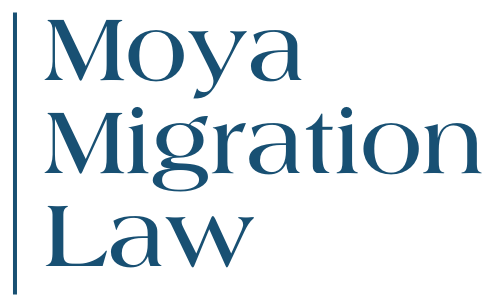Introduction
Receiving a visa refusal or cancellation decision from the Department of Home Affairs is a stressful and uncertain experience. The path forward often involves an appeal to the Administrative Review Tribunal (ART), which replaced the former Administrative Appeals Tribunal (AAT) in October 2024 to provide a more efficient, fair, and accessible merits review process.
However, the ART has inherited a significant and growing caseload, creating substantial backlogs and complicating the appeal process for a migration or protection visa. This guide provides a clear breakdown of the key stages of the ART appeal process and realistic processing times to help you manage expectations and navigate the journey ahead.
What does ART Appeal Processing Times comprise?
Current ART Backlogs & Delays
The substantial backlog of cases significantly influences the ART appeal timeline. The ART, which commenced operations in October 2024, inherited the entire caseload from the former AAT. This inherited workload was immediately compounded by a surge in new applications, leading to unprecedented delays.
The escalating delays are driven by several key factors:
- Massive Caseload: The ART began with a backlog of over 82,000 active cases, projected to exceed 100,000.
- Increased Applications: A sharp rise in new appeals, particularly for student visa refusals, has placed additional strain on the system.
- Resource Constraints: The Tribunal has been unable to keep pace with the increasing number of applications with its available resources.
- Case Complexity: The time required to review a visa refusal or cancellation is also affected by the complexity of the case, the volume of evidence, and the need for additional information.
Consequently, the processing time for many visa categories has grown longer. The median wait time for general migration appeals has increased significantly, and applicants must be prepared for a lengthy process before receiving a decision from the Department of Home Affairs.
Indicative ART Processing Times by Visa Category
As the ART is a new body, its official processing time statistics have not yet been published. The most reliable guide for applicants is the final data from the former AAT, covering cases finalised between 14 April 2024 and 13 October 2024. These figures highlight the extensive wait times for a decision on a visa application appeal.
Based on this data, the indicative processing times for common visa categories are as follows:
| Visa Category | 50% of Appeals Finalised Within | 95% of Appeals Finalised Within |
|---|---|---|
| Partner Visa | 1,249 days (approx. 3 years, 5 months) | 1,877 days (approx. 5 years, 2 months) |
| Protection Visa | 1,756 days (approx. 4 years, 10 months) | 2,243 days (approx. 6 years, 2 months) |
| Student Visa Refusal | 341 days (approx. 11 months) | 761 days (just over 2 years) |
| Temporary Work Visa | 133 days (approx. 4.5 months) | 1,103 days (around 3 years) |
| Visitor Visa | 413 days (approx. 1 year, 1 month) | 494 days (approx. 1 year, 4 months) |
Request Your Free 15-Min Consultation
What are the 5 Key Stages of the ART Appeal Process?
Stage 1: Lodging Your ART Appeal Application
The first and most critical stage in the appeal process is lodging your application for review with the ART. As strict time limits apply, you must act quickly after receiving a visa refusal or cancellation.
For most visa decisions, the deadline to appeal is 28 calendar days from the date you are notified of the decision. However, this timeframe can be much shorter for certain cases. For instance, appeals for character-related visa refusals or cancellations for applicants in Australia must be lodged within nine calendar days.
The application process involves:
- Submitting your application through the ART’s online portal
- Completing the necessary forms
- Paying the standard application fee of $3,496
It is crucial to meet this deadline, as the ART generally has no power to grant an extension, and missing it will result in losing your right to a review.
Stage 2: The Waiting Period & Case Preparation
Once your ART appeal application is lodged and accepted, you enter what is often the longest phase of the process: the waiting period. Due to significant backlogs, your case can take many months or even years before it is assigned to a Tribunal Member for active review.
However, this is not a passive waiting game but the most important opportunity to prepare a strong case. During this time, you should build a robust, merit-based argument that directly addresses the reasons for the visa refusal or cancellation.
This involves:
- Gathering new evidence: Collect updated documents, such as financial records, employment letters, or new police checks, that strengthen your position.
- Obtaining witness statements: Secure statutory declarations or letters of support from friends, family, or colleagues that corroborate your claims.
- Preparing legal submissions: Develop clear written arguments that explain why the Department of Home Affairs’ decision was incorrect and why your circumstances meet the visa requirements.
Stage 3: The ART Hearing Invitation & Scheduling
A significant sign of progress is receiving an invitation to an ART hearing. The Tribunal will send a formal notice, usually by email, informing you that your case is progressing. This invitation provides essential details about the hearing, including the date, time, and format.
Hearings can be conducted in several ways:
- In person at a Tribunal office
- By video conference
- Over the telephone
You will typically receive this notice at least four to six weeks before the scheduled date, giving you time to finish your preparations.
It is important to note that not all cases proceed to a hearing. If your written submissions and evidence are particularly strong and straightforward, a Tribunal Member may make a favourable decision “on the papers” without needing you to attend.
Stage 4: Attending the ART Hearing
The ART hearing lets you present your case directly to an independent Tribunal Member. The process is less formal than a court proceeding and is best described as a structured conversation where the Member investigates the facts of your case.
During the hearing, which can last from one to three hours, you will have the chance to:
- Give oral evidence
- Explain your circumstances
- Answer questions from the Member
- Bring witnesses to provide testimony
A Department of Home Affairs representative is not typically present to argue against you. Also, the ART provides qualified interpreters free of charge if you or your witnesses require one to make sure you can communicate effectively.
Stage 5: Receiving the Final Decision & Potential Outcomes
It is rare to receive a decision on the day of the hearing. The Tribunal Member usually takes time to carefully consider all the evidence, testimony, and legal arguments before making a final determination. A formal written decision is typically sent to you by email several weeks or even months after the hearing.
The ART can make several types of decisions, each with different implications for your visa status:
| Decision Outcome | Description & Implication |
|---|---|
| Set Aside | A successful outcome. The Tribunal disagrees with the original decision and substitutes a new, favourable one. A 50% refund of the application fee is provided. |
| Remit | A successful outcome. The case is returned to the Department of Home Affairs for reconsideration with specific instructions, which usually leads to a visa grant. |
| Affirm | An unsuccessful outcome. The Tribunal agrees with the Department’s original decision, and the refusal or cancellation is upheld. The bridging visa typically ceases 28 or 35 days after notification. |
| Vary | The Tribunal modifies the original decision in some way. |
Request Your Free 15-Min Consultation
How Can Legal Representation Help Your ART Appeal?
Proactive Case Management & Strategic Submissions
Engaging an experienced immigration lawyer or registered migration agent provides a significant strategic advantage in your ART appeal. The value of professional representation extends beyond administrative help; it involves a thorough assessment of your case’s prospects and the identification of legal or factual flaws in the original refusal decision that you might otherwise miss.
An effective legal representative transforms the appeal from a reactive process into a proactive one. Rather than simply waiting for a hearing date, they can improve their chances of a successful outcome by:
| Strategic Advantage | Description |
|---|---|
| Building a comprehensive case | During the long waiting period, a lawyer will work to gather new evidence, obtain experienced reports if needed, and prepare detailed written submissions to make the file “decision-ready”. |
| Preparing strategic legal arguments | Lawyers craft persuasive submissions highlighting the facts and identifying any legal errors made by the Department, referencing past Tribunal decisions or evidence of rehabilitation. |
| Optimising your evidence | A representative provides guidance on the new evidence required to fix weaknesses, ensuring all documents are relevant, well-organised, and meet ART requirements. |
| Ensuring efficient communication | Acting as a single point of contact, a representative streamlines communication with the Tribunal, prevents misunderstandings, and ensures all deadlines are met. |
| Preparing you for the hearing | A vital role is preparing the applicant and any witnesses for the ART hearing, including reviewing evidence and anticipating questions to ensure a clear and confident presentation. |
Requesting Priority Processing for Your ART Appeal
While the significant backlog means most appeals face a long wait, the ART has mechanisms to prioritise certain cases. If your situation is urgent, your legal representative can make a formal written request to have your appeal fast-tracked.
To be considered for priority processing, you must provide compelling reasons and supporting evidence to satisfy the Tribunal that prioritisation is necessary. Circumstances that may warrant an expedited review include:
- The applicant is currently in immigration detention.
- The appeal relates to a visa cancellation decision.
- There are circumstances of severe financial hardship.
- The applicant or a family member has an urgent or serious medical condition.
- The case involves the separation of a child from a parent.
- There are other significant personal factors, such as a family breakdown or the risk of a visa eligibility expiring due to age.
Request Your Free 15-Min Consultation
What are the Practical Considerations While You Wait For A Decision?
Maintaining Your Lawful Status With A Bridging Visa
For many individuals in Australia, lodging an ART appeal is essential for maintaining their lawful status after a visa refusal or cancellation. When an onshore applicant appeals a decision, the bridging visa they hold is typically extended, allowing them to remain lawfully in the country until the ART finalises its review.
The conditions of your bridging visa, particularly work rights, are a critical concern during this waiting period. These conditions are generally carried over from the substantive visa you held when you made your original visa application. If your bridging visa comes with work restrictions, you can apply to have them lifted, but this usually requires demonstrating a compelling need to work due to financial hardship.
It is also important to understand the rules around travel. If you are on a Bridging Visa A (BVA) and need to leave Australia, you must first apply for and be granted a Bridging Visa B (BVB) before you depart. Leaving without a BVB can jeopardise your appeal and your ability to re-enter the country.
The final ART decision directly impacts your bridging visa and lawful status:
- If your appeal is successful (the decision is set aside or remitted), your bridging visa may continue while the Department of Home Affairs finalises your case.
- If your appeal is unsuccessful (the decision is affirmed), your bridging visa will cease 28 or 35 days after you are notified of the decision, at which point you must depart Australia or find an alternative visa pathway, if eligible.
Financial Costs of an ART Appeal
Pursuing an ART appeal involves significant financial costs that every applicant must consider and plan for. The expenses associated with the appeal process can be broken down into several key areas.
The primary costs you should anticipate include:
| Appeal Outcome | Impact on Lawful Status & Bridging Visa |
|---|---|
| Successful Appeal (Set Aside or Remitted) | Your bridging visa may continue while the Department of Home Affairs finalises your case. |
| Unsuccessful Appeal (Affirmed) | Your bridging visa will cease 28 or 35 days after you are notified of the decision, at which point you must depart Australia or find an alternative visa pathway. |
Request Your Free 15-Min Consultation
Conclusion
Navigating the ART appeal for a visa refusal or cancellation is a lengthy process defined by significant backlogs and multi-year processing times for many visa categories. Understanding the five key stages of the appeal, from lodgement to the final decision, and managing practical considerations like your bridging visa status and the associated financial costs are crucial for successfully handling your case.
With so much at stake, securing experienced guidance can make a significant difference in navigating the complexities of the ART appeal process. Contact our experienced ART visa appeal today to benefit from our trusted experiencedise in visa refusal & cancellation appeals and let our specialised team help you plan your next move with confidence.









